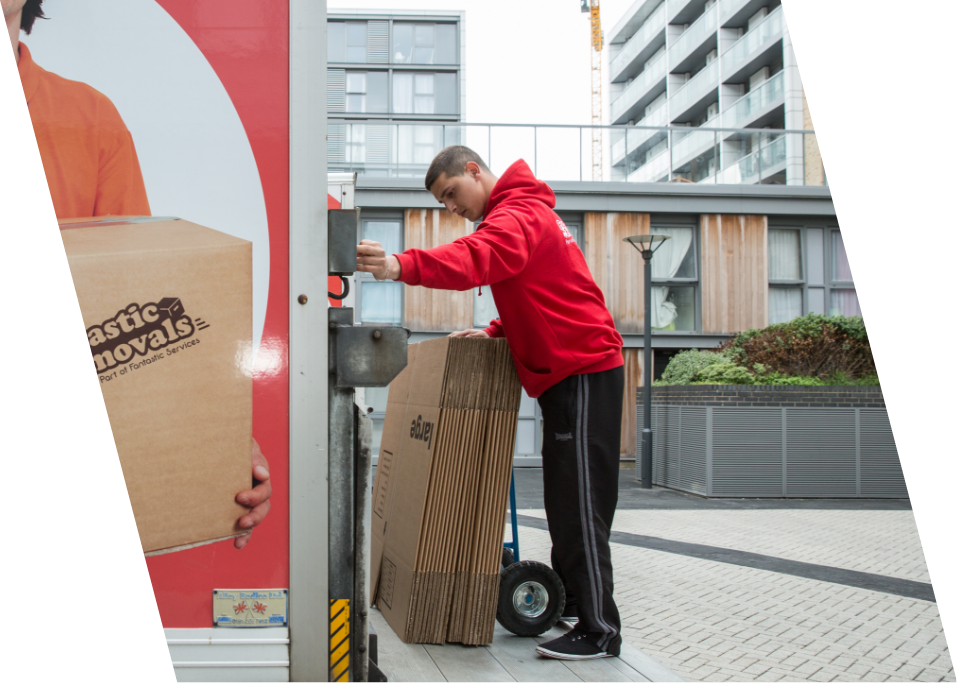Summer is often considered the busiest season for moving, and it is easy to see why. The combination of school holidays, longer days, and generally pleasant weather makes a summer move undeniably appealing.
Nevertheless, similar to any significant life choice, relocating during the summer presents its advantages and disadvantages.
From the convenience of the season to the possible difficulties of coping with heat, it is essential to carefully consider these variables. Ready to decide? Let us explore both sides.
Why Warmer Months Are a Popular Choice
Opting to move during the summer months can significantly impact your experience. Here are some notable advantages of relocating in the warmer season.
Extended Daylight for More Flexibility
One major perk of summer is the abundance of daylight. The extended hours give you more time to organise your belongings and load your moving boxes without the concern of an early sunset, as often happens in winter.
This extra time allows you to spread out tasks and avoid cramming them into a short window.
The natural light also streamlines the packing process and helps you avoid searching in the dark evening hours for any last-minute necessities like tape or scissors.
Starting early in the morning or working into the evening provides extra time to get things done. If you have work or other obligations, this can have a big impact.
Favourable Weather Conditions
Imagine moving under a clear, azure sky where the sun gently illuminates your new beginnings. The pleasant climate during this time of year eliminates the hassles of rain, ice, or snow, ensuring your journey is smooth and uninterrupted.
For those living in areas prone to severe storms during the colder months, moving in summer is an obvious choice.
That said, the summer heat can still pose its challenges. While it is a relief not to bundle up in heavy coats while carrying large boxes, extreme temperatures can be taxing.
We will explore the downsides of the heat later, but for now, let us appreciate the ease of loading and unloading in dry, clear weather.
Dry conditions mean your belongings are safe from moisture damage, and the risk of slipping on wet surfaces is minimal.
With clear skies and comfortable temperatures, you will not feel pressured to rush through packing. You can even leave boxes or furniture outside temporarily without constantly worrying about rain soaking your belongings.
School Breaks Make It Easier for Families
Relocating during school holidays can be much more practical if you have children. During the academic year, such a transition can disrupt their education, and juggling school drop-offs with the demands of a move can be overwhelming.
With school breaks, you have greater flexibility. There is no need to worry about interfering with their routine, and children can even contribute by packing their belongings or helping with smaller tasks.
This period also provides an excellent opportunity for children to adapt, especially if the move involves switching schools. Having time to explore their new surroundings, meet neighbours, and make friends can make the adjustment smoother and less stressful.
More Properties Available for Rent or Purchase
Summertime brings increased activity in the housing market. Hence, there are usually more diverse properties for rent or purchase. Summer offers more options for buyers and renters, making it easier to find the ideal home for your family.
This availability also allows you to find houses that are off the market at other times of the year or negotiate better prices.
Challenges of Relocating During Peak Season
While relocating in the summer is the go-to solution for most people, the warmer months bring unique challenges that can complicate your experience. Some of these key drawbacks include the following.
High Demand and Higher Costs
The heightened demand during this period frequently results in elevated expenses.
Under the principles of supply and demand, relocation companies are likely to impose higher fees, and postponing your reservation could leave you with fewer alternatives.
To avoid overspending, it is essential to plan ahead. Assess moving services, request quotations, and secure your moving date as early as possible to ensure a reasonable rate.
Keep in mind that the cost of materials like bubble wrap, tape, and moving bins can fluctuate during peak season. Opting for removal boxes delivery service can help you save money, as these companies often provide competitive pricing.
Dealing with Heat and Its Effects
Although bright weather is a gift, it may soon become a drawback if you are not careful. Moving is physically demanding. Hence, adding the high heat of July and August can make the process an absolute pain.
Spending the day under the blazing sun can leave you tired, sweaty, and drained.
A warm-season move also comes with the real risk of heat stroke. To stay safe, avoid working during the peak afternoon heat, stay hydrated, and take regular breaks.
If you are engaging a moving provider, think about scheduling an early morning appointment to minimise exposure to the hottest part of the day.
You also should consider how the heat can damage your possessions. If left in the moving truck for too long, some items, including electronics, candles, and some kinds of furniture, can melt or become deformed.
Traffic and Congestion
Summer is the most popular season for leisure and relocation trips. Families heading for holidays can cause increased traffic, which will slow down your move.
If you live in a city, the extra traffic can cause delays that add time to an already lengthy process. This is particularly true in case you have to move back and forth between several locations or storage spaces.
Plan your day deliberately to avoid this. Steer clear of the busiest times and, if at all feasible, consider a weekday instead of a weekend. It is worth mentioning that certain cities also have unique traffic restrictions in the summer due to celebrations or events.
Allergies and Pests
Warmer months often bring an increase in allergens, such as pollen from blooming plants. Additionally, higher temperatures attract pests like ants, mosquitoes, and flies, which can become a nuisance during activities like packing and organising.
The situation can be even more challenging when moving into a poorly maintained home. To avoid such issues, take precautions beforehand.
Remember to inspect the property for pests, ensure proper ventilation to reduce allergens, and keep allergy medications easily accessible.
To minimise allergy exposure, it also helps to keep windows closed during high pollen seasons and use air cleaners.
Consider packing in sealed containers to prevent allergens from spreading and protect your belongings from pests.
Using natural pest deterrents, such as diatomaceous earth or essential oils, can help repel unwanted insects in both your current and new residences without relying on strong pesticides.
Additionally, consistent vacuuming and surface sanitising aid in maintaining cleanliness, thereby preventing the buildup of allergens and averting insect issues.
Conclusion
Should you relocate during the summer? It largely depends on your preferences and circumstances. While long days, pleasant weather, and school holidays make it an appealing time, higher costs and heat can pose challenges.
Planning, booking services early, and managing the heat can ensure a smooth move. However, if timing is not urgent, waiting for the off-season could save you money.
In any case, the secret lies in being flexible. This ensures that your relocation will go without a hitch, regardless of the season.

